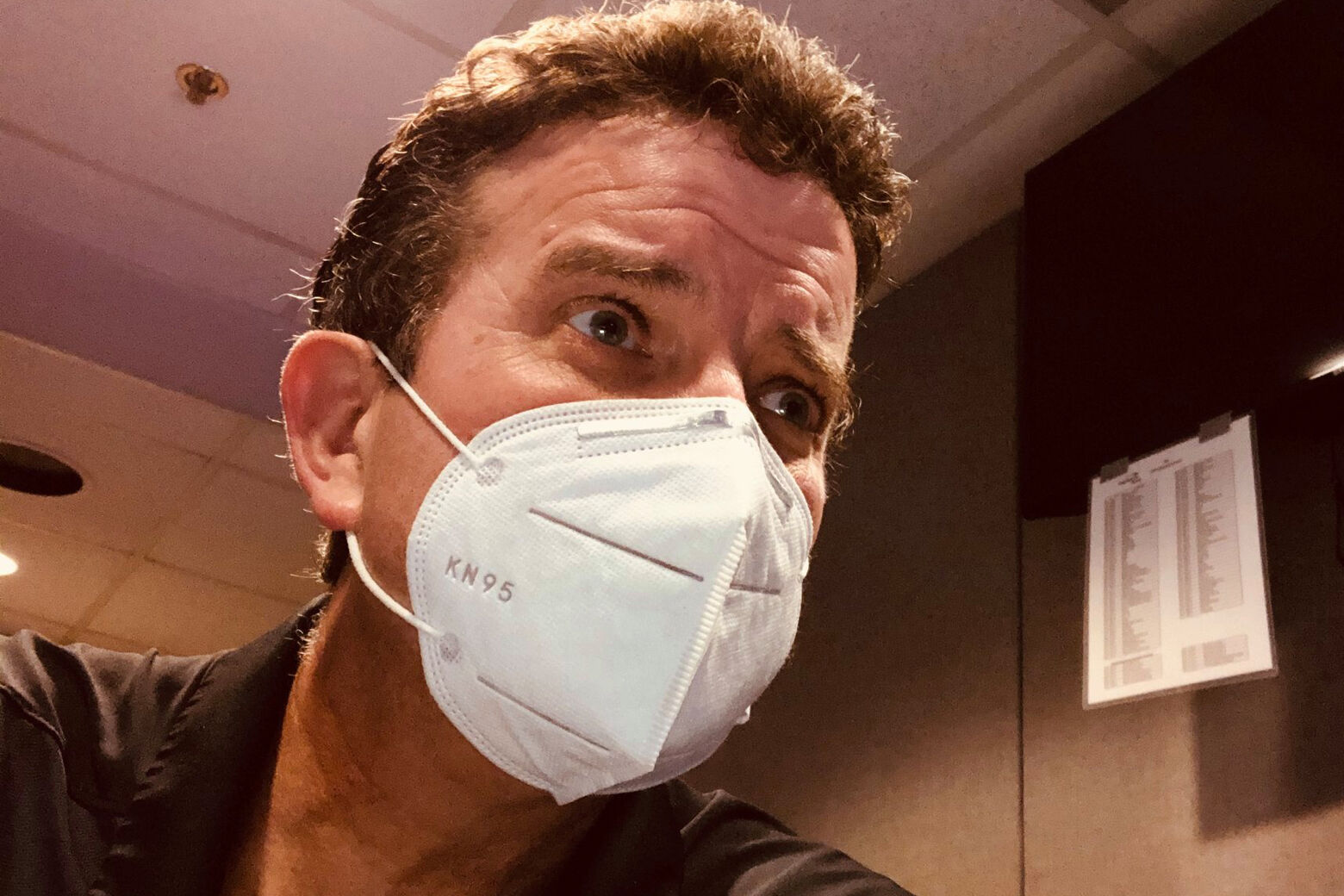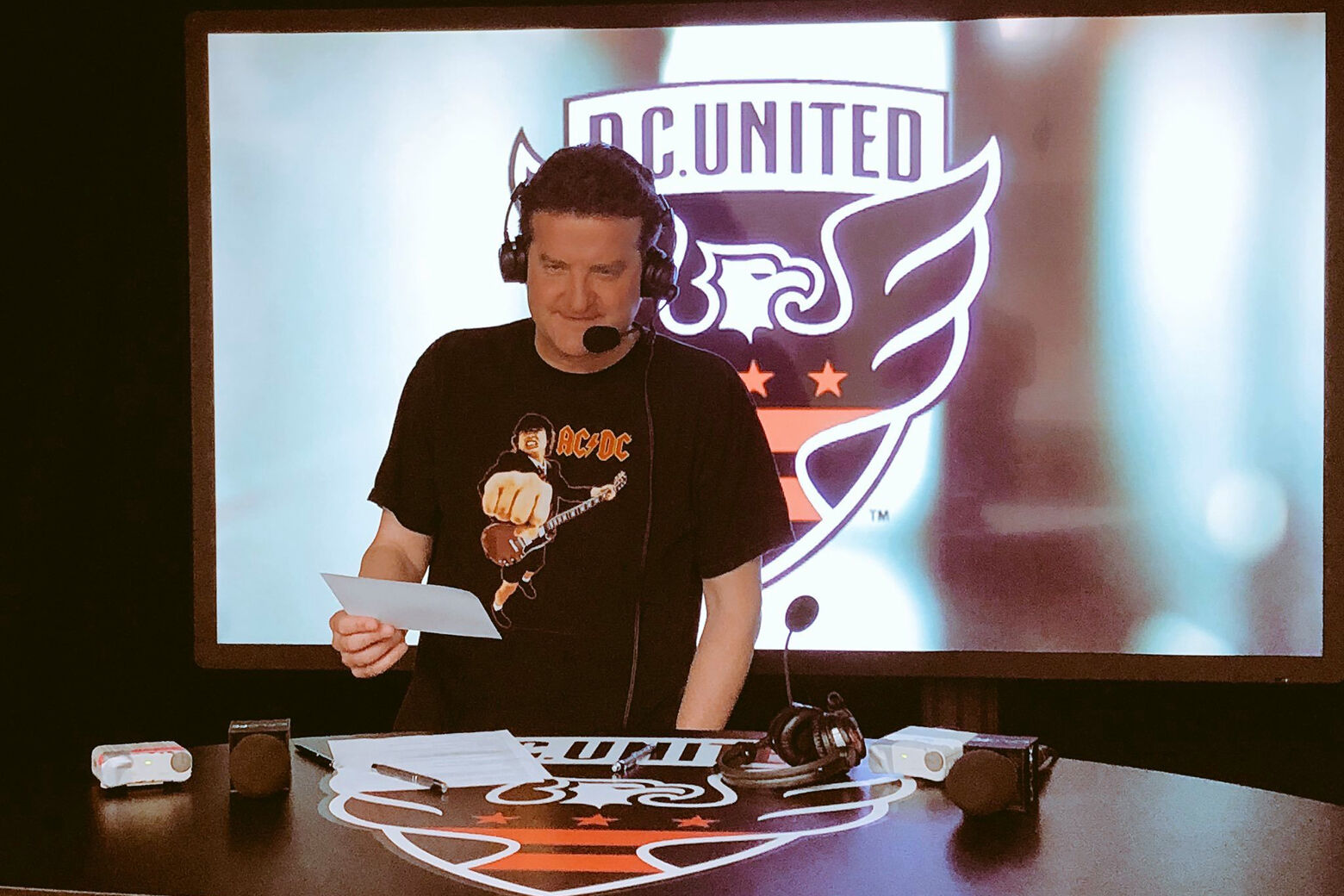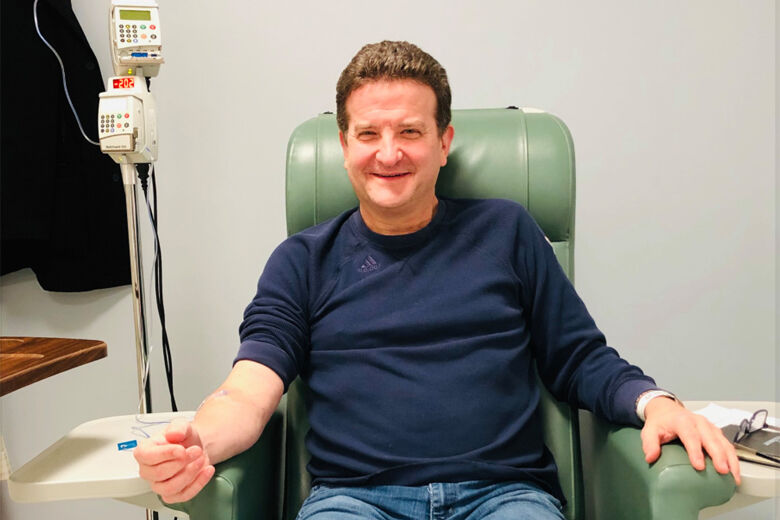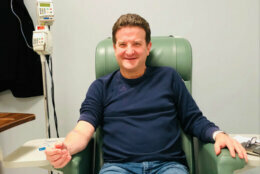





It’s now been more than a year since WTOP Sports Director Dave Johnson shared some unwanted news: he’d been diagnosed with multiple sclerosis.
“I remember that conversation vividly — I was alone in a Dallas hotel room, and about to embark on a Wizards season,” Johnson recalled this week.
Johnson, 56, was beginning his 23rd season doing radio play-by-play with the Washington Wizards NBA team, and is in his 25th year at WTOP. For more than two dozen years, Johnson has called D.C. United soccer matches.
“I remember that feeling of fear of the unknown, even though I knew so much, since I dealt with MS as a caregiver for my mother,” Johnson said. His mother, Mary Lue, died of complications of the disease at age 43, when Dave was 15.
Johnson has primary progressive multiple sclerosis, a potentially disabling disease of the brain and central nervous system.
While patients with different variations of multiple sclerosis develop symptoms over days and weeks, and often improve, according to the Mayo Clinic, primary progressive MS patients experience a gradual and steady progression of signs and symptoms without relapses.
So how is he doing?
“I feel good,” he said, thankfully. “I’m not really noticing any new symptoms — in fact, I think I feel better now.”
There is no cure for MS, but Johnson has been getting infusions of Ocrevus, the lone FDA-approved disease modifying treatment. Patients receiving Ocrevus are slightly less likely to progress than those who are untreated.
Since medical treatment can only slow the start and progression of the disease, how could Johnson be feeling better than a year ago?
“Back then, I could say with bravado, ‘I’m going to beat this,’ but I was also afraid a year ago — I could say it, but I wasn’t sure,” Johnson admits.
Now, when he looks at himself, he thinks: “OK, I’m still moving. I’m still going to get out there and still gonna get involved.”
Before publicly telling anyone his diagnosis and starting his fight for awareness about multiple sclerosis, Johnson had confided in me, one morning in the newsroom, after I mentioned he seemed to have a slight limp.
“The way I walk, you can notice it sometimes. I didn’t want to be saying, ‘Yeah, my knee’s bothering me a little bit.’ The honest truth is, I have multiple sclerosis,” he said.
Johnson hoped his public visibility — in addition to the advocacy of the National MS Society — might help more people learn about the disease, and provide some support to others.
He has maintained his breakneck pace, often on the road with traveling sports teams, while doing morning drive sportscasts from hotel rooms in cities across the country.
“My employers have said, ‘Do what you want to do.’ They’ve left it up to me to make a decision on how hard I want to work, or how much I travel. I’m still doing what I was doing, before my diagnosis, a year ago.”
I asked him if he recently started using any new technologies to help him do his various jobs. He said the only one he can recall is the Otter voice-to-text transcribing software: “But I needed that long before MS because I’m a lousy typer.”
Like most people, Johnson keeps his eyes open for technological developments to make work more efficient.
“We do live in a wonderful age, I know it sounds cliché. There is technology we can resort to that helps make our jobs easier. Look, I’m putting my clothes in a washing machine. I’m not drying them on rocks by the river, like our ancestors did, once upon a time.”
With one year of treatment and living with multiple sclerosis under his belt, Johnson is characteristically upbeat, and thankful to be continuing to work full throttle, with his never-ending schedule of travel, and alarms getting him out of bed at 2:30 a.m.
As a friend, I gingerly asked him whether he could envision privately telling an employer that he should probably slow down, if symptoms were to progress.
“It’s a trusting thing. I’m fortunate that I trust the people I have associations with and work with, that they’re going to be supportive,” Johnson said. “And they have been.”
Johnson said he has received support and advice from another professional broadcaster.
“Chris Carrino, a wonderful play-by-play announcer with the Brooklyn Nets, he’s resorted to using a wheelchair, but he continues doing his job,” Johnson said. Carrino has a form of muscular dystrophy.
Johnson is taking Carrino’s words to heart: “One of the things he told me was never be afraid to ask for help.
“Too often, in so many things in life, we’re afraid to ask for help if we need it — we think it makes us weak, or vulnerable. The reality is, we all need some kind of help and some kind of support in some way.”
As he begins his second year after receiving his diagnosis, Johnson’s resolve is strong.
“A year ago, I was afraid, and I felt kind of alone. Then I opened myself up, and I’ve met so many wonderful people, and I’m sharing that journey. Everyone’s got their story. Let your story be known as much as you want, and you can create a community that can give you strength.
“I’ve certainly found that.”







